Introduction
Embracing AI in Education: A New Frontier
Welcome to the transformative realm of AI in EFL assessment, a dynamic facet of educational technology (EdTech) that is continually redefining how we teach and learn. In this exploration, we delve deeper into how Artificial Intelligence is revolutionizing assessment in English as a Foreign Language (EFL) classrooms.
Picture this: a classroom where every student’s unique linguistic abilities are precisely evaluated, not by a tired teacher overwhelmed with papers but by an intelligent, tireless AI tool. This is not a glimpse into a distant future, but a reality unfolding in classrooms today, thanks to the advent of technologies like ChatGPT.

My personal endeavor to build a custom ChatGPT tool for assessing my university students’ speaking assignments was both challenging and enlightening. It was a quest to marry technology with pedagogy, to make assessment not just a grading exercise but a cornerstone of effective learning.
As we navigate through this post, I invite teachers, educational researchers, and parents alike to join me in uncovering the potential and pitfalls of using AI for EFL assessment. We’ll explore the traditional methods, their limitations, and how AI, particularly a custom ChatGPT, can revolutionize this crucial aspect of language learning.
Together, we’ll journey through my experiences: the steps involved in creating a custom ChatGPT, the practical applications in grading speaking assignments, and the broader implications for education. Through this exploration, we aim to demystify AI in education and offer insights into its practical, ethical, and educational facets.
So, let’s embark on this educational odyssey, exploring how AI tools like ChatGPT are not just futuristic concepts but practical solutions that are reshaping the landscape of EFL assessment today.
The Role of AI in EFL Assessment: Enhancing Learning and Cognitive Processes
The integration of Artificial Intelligence (AI) in education, particularly in the realm of English as a Foreign Language (EFL) assessment, marks a significant shift from traditional pedagogical approaches. This evolution towards AI-assisted education is not just about technology; it’s about redefining the learning experience and making it more effective, engaging, and student-centric.
Traditional vs. AI-Enhanced EFL Assessment
Traditionally, EFL assessment has largely relied on teacher evaluations and peer reviews. While these methods have their merits, they come with limitations such as subjective bias, inconsistency, and the immense workload on educators. AI in EFL assessment, particularly tools like custom ChatGPT, introduces a new dimension of accuracy, consistency, and personalized feedback, fundamentally altering the assessment landscape.
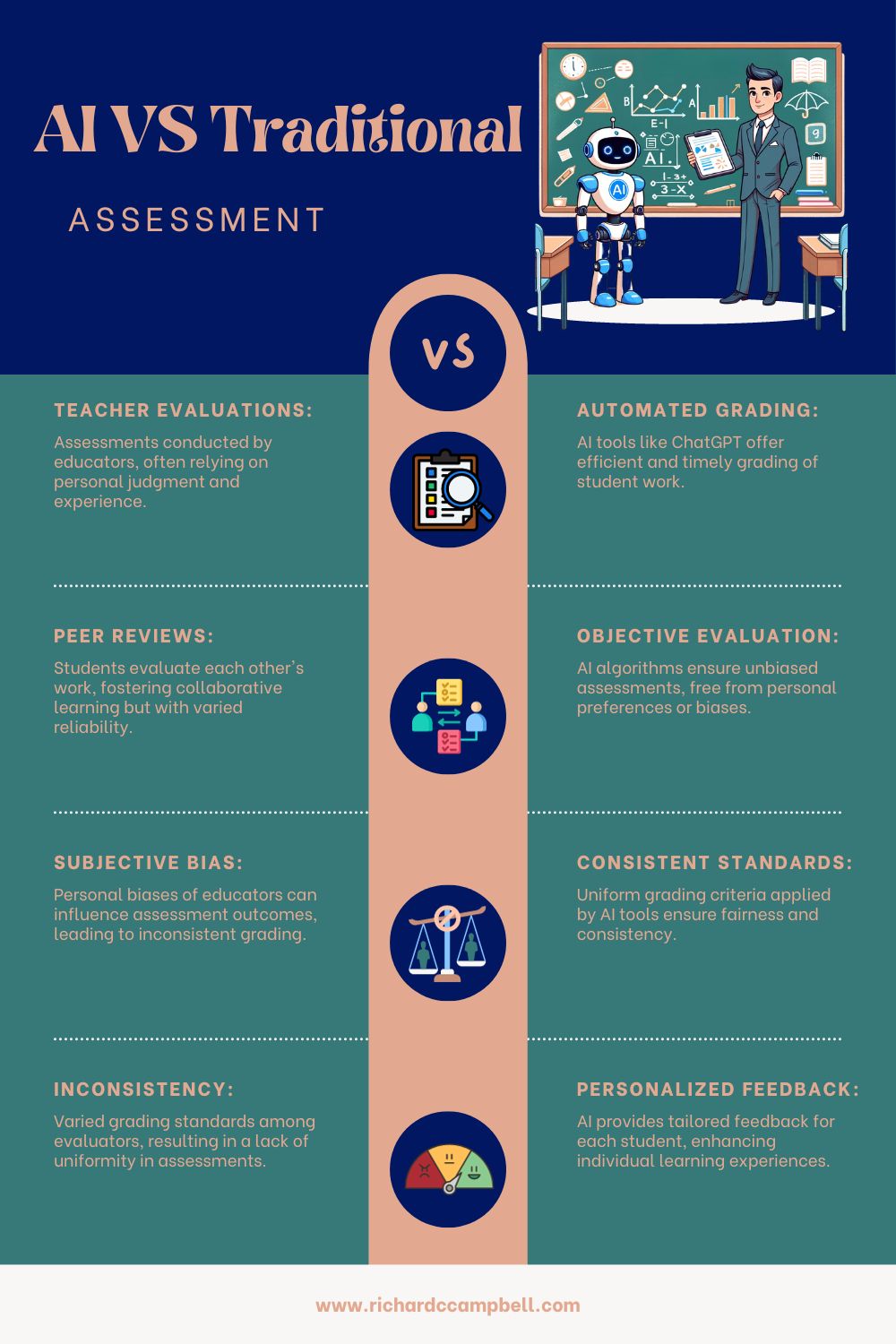
Empirical Insights into Peer Assessment
Research underscores the significance of peer and self-assessment in language learning. For instance, a study by Salem Almahasneh and Abdul-Hamid (2019) demonstrated that students who engaged in peer assessment training showed significant improvement in their writing skills, outperforming those who didn’t participate in such training.
This finding aligns with the notion that peer assessment can enhance students’ cognitive processes and assessment abilities, as evidenced by the work of Tunagür (2021) and Imani (2022), who highlighted the positive impacts of peer and self-evaluation on the speaking abilities of EFL learners.
Moreover, the incorporation of peer assessment in the educational process can mitigate the anxiety and cognitive blockages students often encounter. It encourages a focus on continuous improvement, thereby reducing the performance pressure that typically accompanies traditional assessments
AI’s Role in Facilitating Autonomous Learning
The transition to AI-assisted tools like custom ChatGPT in EFL assessment is a leap towards more autonomous and self-regulated learning. These tools can perform tasks ranging from evaluating students’ spoken language proficiency to offering personalized feedback.
This not only alleviates the burden on teachers but also empowers students to take a more active role in their learning journey. The AI’s unbiased and consistent feedback provides a clear pathway for students to understand their strengths and areas for improvement.
Conclusion
Incorporating AI into EFL assessment is more than a technological upgrade; it’s a pedagogical revolution. It harmonizes with the principles of modern educational theories that advocate for student-centered and self-regulated learning environments.
As we venture further into this AI-assisted educational era, it’s crucial to embrace these tools not just for their technological prowess but for their potential to enrich the educational experience of both learners and educators.
Case Study: Using Custom ChatGPT for Grading EFL Speaking Assignments
In an intriguing experiment, I explored the potential of a custom-built ChatGPT to grade speaking assignments for my Korean EFL university students. This section will delve into the process, outcomes, and broader implications of this innovative approach.
The Process: Customizing ChatGPT for EFL Assessment
My students typically submit their speaking assignments as 1-2 minute videos on Google Classroom. Traditionally, I would grade these assignments using a specific rubric while watching each video. For this experiment, I embarked on a novel approach: creating a custom GPT model that incorporated my own data, including the textbook content and the grading rubric.
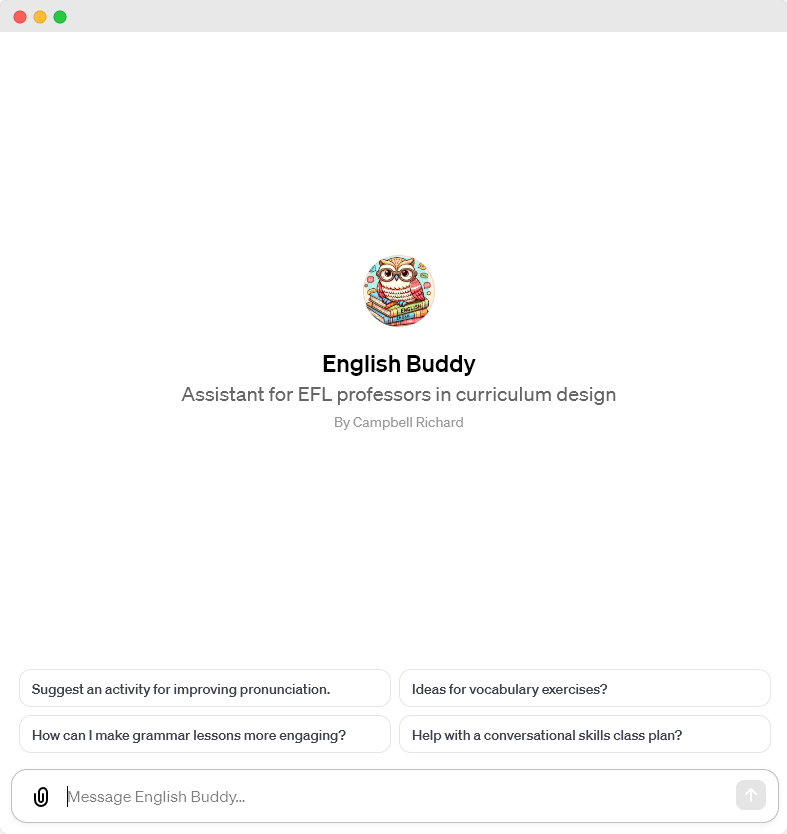
Since ChatGPT cannot process video content, I uploaded the student videos to a private YouTube channel and extracted the transcript. I then associated each transcript with the respective student’s number, and uploaded this data to the custom ChatGPT model for grading.
Outcomes and Reflections
The results of this experiment were enlightening. The custom ChatGPT’s grading was impressively accurate, closely mirroring my own scores. However, it tended to be slightly stricter. Given this, I opted to use my scores for the students’ grades.

The process, while innovative, was more time-consuming than traditional grading. However, I identified a potential time-saving modification: having students upload their videos to their own YouTube channels and provide both the link and the transcript. This adjustment could significantly streamline the grading process in the future.
The Potential of AI in EFL Assessment
This experiment has reinforced my belief in the vast potential of AI in educational assessment. AI tools, like the custom ChatGPT, can provide accurate, unbiased, and consistent grading. However, I also recognize the importance of student involvement in the process. Ideally, students should participate in creating the AI that assesses their work, fostering a deeper understanding and engagement with the technology.
Despite the promising results, I am cautious about fully relying on AI for critical assessments such as midterms or finals. AI in education, particularly in assessment, is still evolving and requires further development and testing before it can be wholly trusted with high-stakes evaluations.
The Impact on Students and Educators: AI in EFL Assessment
The advent of AI assessment tools like ChatGPT has ushered in significant changes in educational landscapes, particularly in EFL assessment. These changes have profound implications for both students’ learning experiences and educators’ workloads.
Pedagogical Shifts in AI Integration
The integration of AI in educational contexts, especially for assessment purposes, remains an evolving field. A study focusing on AI application in education highlights that while AI’s technical aspects are often elaborated, its pedagogical underpinnings are less emphasized. Most research focuses more on the technical deployment of AI rather than the pedagogical models supporting its use in education.
However, a few studies do consider pedagogical aspects, such as collaboration methods and early feedback, which are essential for educational processes.
AI’s Role in Formative Assessment
Formative assessment emerges as a key area where AI tools have been effectively utilized. Several studies have demonstrated the use of AI in formative evaluation, providing a platform for collaborative work and frequent, automated feedback to students. This automation in feedback and assessment is particularly valuable for educators managing large classes, as it aids in reducing their workload and allows for more personalized attention to students.
Automated Scoring and Feedback
A significant functionality of AI in education is automated scoring. Studies have shown AI’s capability to grade various competencies, from language skills to technical subjects like engineering and medical education. This automated grading facilitates immediate feedback and adaptation to students’ learning needs, thus enhancing the learning process.
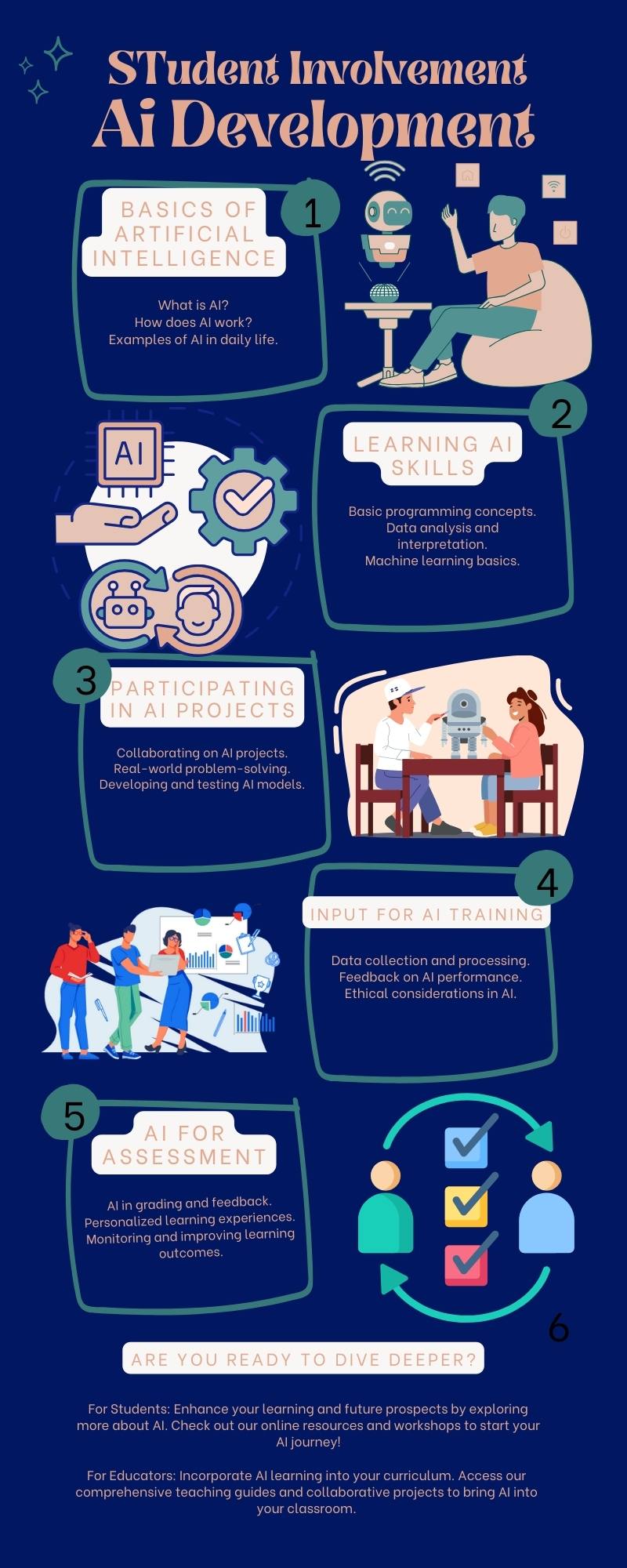
Comparative Analysis of AI and Traditional Methods
Studies comparing AI-based assessment with traditional methods indicate that students using AI tools often perform better. In terms of accuracy, the results obtained via AI are mostly in line with traditional assessment methods, demonstrating AI’s reliability in educational assessment. This suggests that AI can be a viable supplement to conventional teaching and assessment methods, providing more efficient and accurate evaluations.
Broader Implications and Future Directions
Despite its growing application, the use of AI in education is not yet widespread. This may be attributed to a lack of familiarity among educators and students. The current body of research emphasizes the need for a balance between technological capabilities and pedagogical requirements.
Most studies tend to focus on the technical implementation of AI, often overlooking its educational implications. As AI continues to evolve, it’s crucial to develop pedagogical models that effectively integrate these technologies into teaching and learning processes.
In summary, AI assessment tools like ChatGPT have the potential to revolutionize EFL assessment, benefiting both students and educators. They offer a means to enhance learning through personalized feedback and reduce educators’ workload through automated grading. However, for AI to be effectively integrated into educational practices, a balanced focus on both technical and pedagogical aspects is essential.
Ethical Considerations and Challenges in AI Educational Assessment
The implementation of AI in educational assessment brings several ethical considerations to the forefront. Understanding and addressing these concerns is vital for ensuring that AI is used responsibly in educational settings.
Privacy and Data Protection
Privacy is a primary concern when it comes to AI in education. According to Stahl & Wright (2018), it is crucial to protect sensitive personal data. However, the requirement for data to develop and improve AI creates a tension between privacy and efficacy. The use of machine learning processes large amounts of data, which raises concerns about how this data is collected, used, and protected.

Additionally, there is a growing perception that younger generations are more willing to relinquish their privacy, yet studies suggest they may actually be more concerned about it than previous generations (Blank, Bolsover, & Dubois, 2014). The current approach to consent in data collection often lacks transparency and does not constitute true informed consent, leading to a potential undermining of human agency.
Bias, Accountability, and Surveillance
Privacy concerns often reflect deeper issues related to bias, accountability, security, surveillance, and transparency. An example is avoiding exposure to discrimination, such as cultural biases against certain orientations, which shows that privacy concerns are sometimes a cover for deeper ethical issues. This intertwining of privacy with other ethical concerns necessitates a comprehensive approach to address these issues.
For instance, Arizona State University’s use of student data for predictive outcomes raises questions about whether anonymizing data sufficiently addresses privacy concerns. Furthermore, for marginalized groups, data analysis could entrench existing power structures and surveillance systems, echoing Foucault’s concept of the panopticon.
Responsibility and Machine Autonomy
The accountability of AI systems is a complex issue. It is easy to blame the AI itself, but in reality, AI is no more to blame than any other software. This misconception leads to the deresponsibilization of developers and users. As de Saint Laurent (2018) points out, developers and deployers of AI should bear the responsibility for its outcomes.
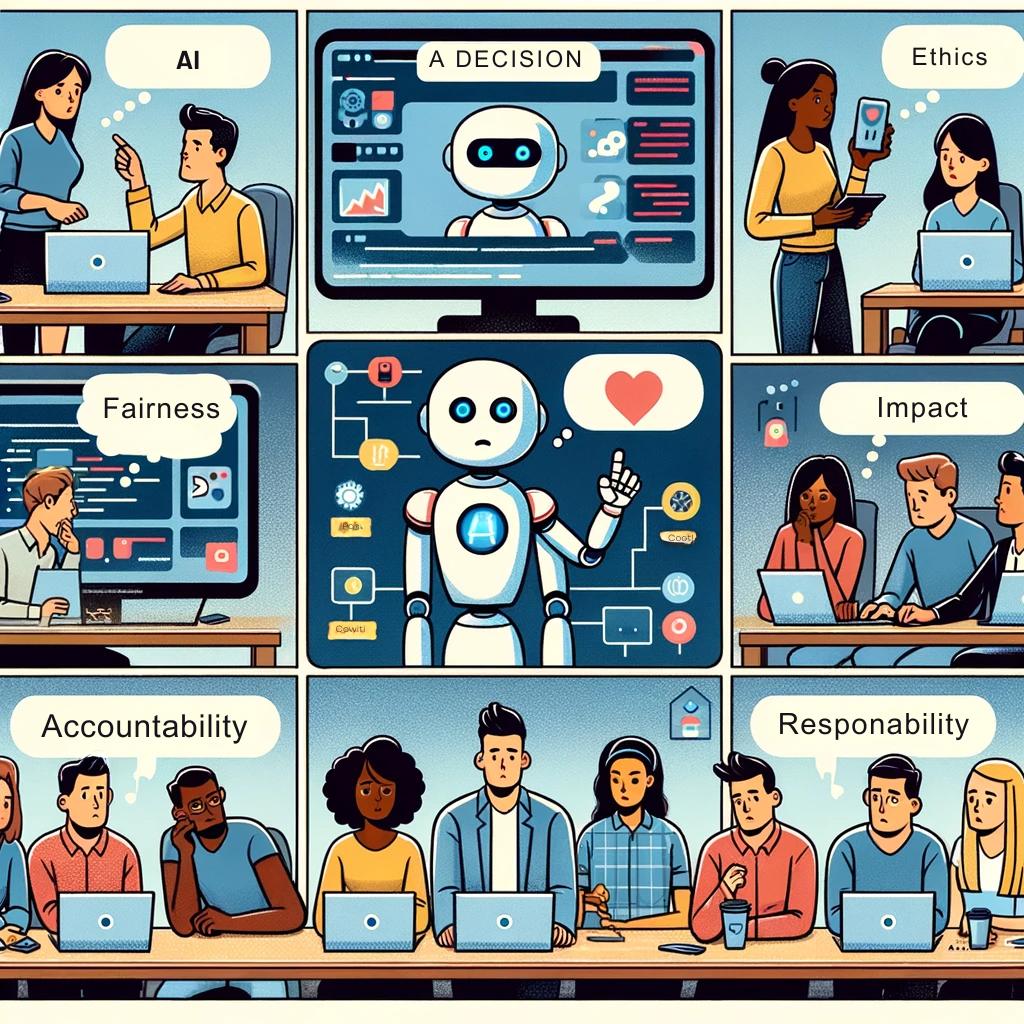
The current inability of AI to explain its reasoning complicates accountability, as the causes of harmful actions by AI may remain unknown, leaving no recourse for correction. International standards by organizations like ACM and ISO include measures for accountability, but self-policing by financially interested companies may not fully address these concerns.
In summary, the ethical use of AI in education hinges on balancing the benefits of AI-enhanced learning with the protection of privacy, ensuring accountability, and addressing potential biases and surveillance issues.
Conclusion and Future Perspectives
As we conclude our exploration of AI in EFL assessment, it’s clear that the integration of AI tools like ChatGPT in education is more than a technological advancement; it’s a pedagogical evolution. Throughout this post, we’ve delved into various facets of AI in education, from its role in enhancing learning and cognitive processes to its practical application in grading EFL speaking assignments.
The case study of using a custom ChatGPT for grading demonstrated the potential for AI to provide accurate and unbiased assessments, albeit with the need for more refinement and integration. We also discussed the broader impact of AI on students and educators, noting its ability to facilitate more personalized learning and reduce educators‘ workload through automated scoring and feedback.
However, the use of AI in education is not without challenges. Ethical considerations, particularly in terms of data privacy, bias in AI, and the reliance on technology, need to be addressed rigorously. We must strive to find a balance between the benefits of AI-enhanced learning and the protection of our students’ privacy and rights.
Looking ahead, the future of AI in EFL assessment and education seems promising yet requires careful navigation. The potential for AI to transform educational practices is immense, but it must be coupled with a strong ethical framework and a focus on enhancing the pedagogical process.
Questions for Reflection:
- How can educators ensure that the implementation of AI in assessment respects students’ privacy and rights?
- In what ways can AI tools be further developed to align more closely with educational goals and learning outcomes?
Call to Action
The journey into AI-enhanced education is just beginning, and I encourage educators, researchers, and students to explore the possibilities that AI tools offer in teaching and learning environments. Whether it’s through experimenting with AI for grading, enhancing student engagement, or personalizing learning experiences, the potential for innovation is vast.
To further your understanding and integration of AI in education, here are some valuable resources:
- Artificial Intelligence in Education: Promises and Implications for Teaching and Learning
- AI and the Future of Learning: Expert Panel Report
- The State of AI in Higher Education
Embrace the opportunity to be at the forefront of this educational revolution. Explore, experiment, and engage with AI tools to enrich your teaching and learning experiences. AI is what will power education in the future.
To mitigate these challenges, there must be transparent data practices, responsible development and deployment of AI systems, and an ongoing dialogue about the ethical implications of AI in educational settings.
Frequently Asked Questions
What is AI in EFL assessment?
AI in EFL (English as a Foreign Language) assessment refers to the use of Artificial Intelligence technologies to evaluate students’ English language skills, including speaking, writing, and comprehension.
How does AI improve EFL assessment?
AI enhances EFL assessment by providing more accurate, consistent, and unbiased evaluations. It can handle large volumes of student work quickly, offer personalized feedback, and reduce the grading workload for teachers.
Can AI in EFL assessment replace human teachers?
No, AI is not meant to replace human teachers. Instead, it serves as a tool to assist teachers in assessment tasks, allowing them to focus more on teaching and less on time-consuming grading.
Is AI in EFL assessment reliable?
AI technologies, when well-designed and properly trained, are reliable for EFL assessment. They are programmed to evaluate based on set criteria, ensuring consistency in grading.
What are the ethical considerations in using AI for EFL assessment?
Key ethical considerations include ensuring data privacy, addressing potential biases in AI algorithms, and maintaining transparency in how student data is used and assessed.
How can educators integrate AI into their EFL assessment practices?
Educators can start by experimenting with AI tools for specific tasks like automated essay scoring or spoken language evaluation, and gradually integrate these tools into their broader assessment strategies.




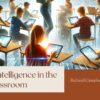




Recent Comments